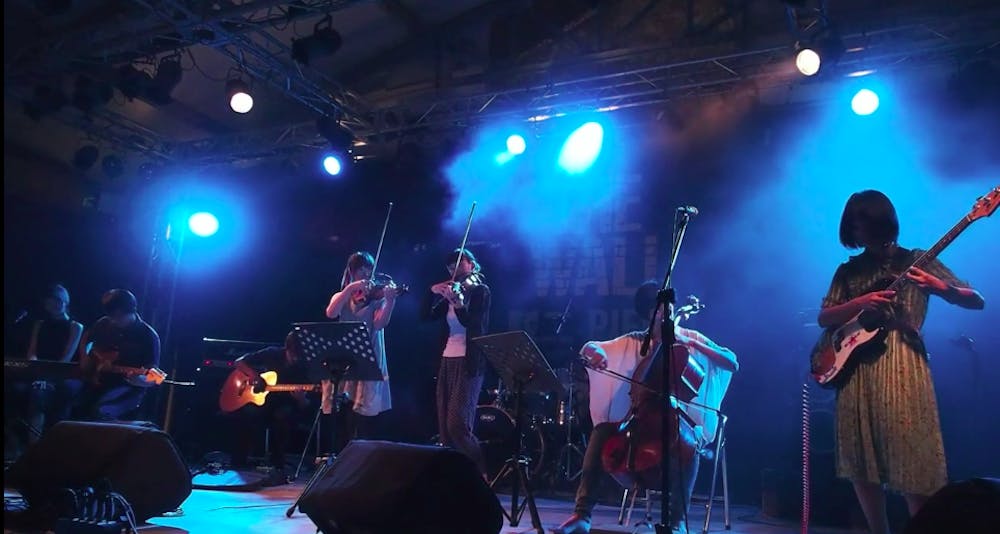Paying special attention to instrumentals, and often employing complex chords and time signatures, the technical features of the post/math rock genre are universal—but, cultural differences between East Asia and the Western world are obvious even in this relatively obscure realm. Though you might have heard of bands like Slint and Don Caballero, we bet their Asian counterparts are still unknown to you. Here are five bands you should check out, if you haven’t already.
Tricot
Tricot, a math rock trio, hails from Kyoto, Japan. Even their album titles, “A N D,” “T H E,” and “3” amplify their identity as a powerful, compact three piece band. The band consists of three women who combine aspects of prog and punk to create volatile riffs, sharp turns in time, and complex layers of instrumentals and vocals. Their songs trip and tumble, yet never fall over.
Significantly, Tricot also incorporates vocals into their music. Singer Ikumi "Ikkyu" Nakajima says, “Although I sing using Japanese, I try to put the message of the song in the voice itself. That way, it allows meaning to be transmitted beyond the language barrier.”
Tricot also uploads playthroughs of their songs on their official YouTube channel, much to the delight of their fans. You can find more of their music here.
Elephant Gym
Elephant Gym is a bass–driven math rock band from Taiwan. Their name actually refers to the acrobatic, complex nature of the bass, or the “elephant.” Tif and Tell, on bass and guitar respectively, were raised by classical music, but eventually grew to explore and love several different genres.
Elephant Gym, then, strives to find common ground between Western math rock and traditional Taiwanese music. Tell even notes that “apart from exploring the relationship between math rock and oriental music, [Elephant Gym] hope[s] to introduce fans of modern math rock to traditional Taiwanese music.” Find more of their music here.
toe
toe is a Japanese rock band. Though predominantly known as a post rock band, they are also acknowledged for their more “mathy” characteristics. toe is mostly instrumental, featuring clean guitar settings and vibrant sound–composed textures.
toe draws influence from the Chicago band Ghosts and Vodka. Upon listening to their 1999 “Memento Mori,” guitarist Yamazaki Hirokazu knew he wanted to write similarly styled songs. “I loved their emotional guitar music without vocals,” said Yamazaki. Find more of their music here.
The Cabs
The Cabs are no longer together, but they’re most definitely worth mentioning. Combining elements of both emo and math, The Cabs also balance characteristics from two periods of emo: the “twinkly” guitar style employed in American Football, and the more frantic, hardcore style employed by Hot Cross.
They decided to end things when guitarist Takahashi Kunimitsu vanished right before the start of their album launch tour. Their music, though, can still be found here.
No Party for Cao Dong
A Taiwanese indie, dance–pop, post rock band. Unlike most of the other bands on this list, they place more emphasis on lyrics, through which they often critique or address societal issues. Their popular track “Da Feng Chui” (“Simon Says”), for example, criticizes materialism and arbitrary competition. Although balancing negative themes with empowering messages can be difficult, Wu, the singer, argues that “love and hate always go together—one can’t exist without the other.”
The band derived their name from Cao Dong Street in Taipei’s Yangmingshan, a regular hangout for the band members. Their music can also be found on Bandcamp.

